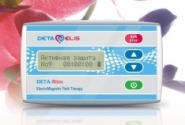Cardiovascular disease - a group of diseases of the heart and blood vessels:
- coronary heart disease (a disease of blood vessels that supply blood to the heart muscle);
- Cerebrovascular disease (a disease of blood vessels that supply blood to the brain);
- peripheral arterial disease (a disease of blood vessels that supply blood to the arms and legs);
- rheumatic heart disease (damage to the heart muscle and heart valves from rheumatic fever, caused by streptococcal bacteria);
- congenital heart defect (existing at birth malformations of heart structure);
- deep vein thrombosis and pulmonary embolism (formation in the leg veins of blood clots that can dislodge and move to the heart and lungs).
How do I know if I have heart disease?
Heart disease often has no symptoms. But, there are some signs to watch for. Chest or arm pain or discomfort can be a symptom of heart disease and a warning sign of a heart attack. Shortness of breath (feeling like you can't get enough air), dizziness, nausea (feeling sick to your stomach), abnormal heartbeats, or feeling very tired also are signs. Talk with your doctor if you're having any of these symptoms. Tell your doctor that you are concerned about your heart. Your doctor will take a medical history, do a physical exam, and may order tests.
What are the signs of a heart attack?
For both women and men, the most common sign of a heart attack is:
Pain or discomfort in the center of the chest. The pain or discomfort can be mild or strong. It can last more than a few minutes, or it can go away and come back.
Other common signs of a heart attack include:
- Pain or discomfort in one or both arms, back, neck, jaw, or stomach
- Shortness of breath (feeling like you can't get enough air). The shortness of breath often occurs before or along with the chest pain or discomfort.
- Nausea (feeling sick to your stomach) or vomiting
- Feeling faint or woozy
- Breaking out in a cold sweat
Women are more likely than men to have these other common signs of a heart attack, particularly shortness of breath, nausea or vomiting, and pain in the back, neck, or jaw. Women are also more likely to have less common signs of a heart attack, including:
- Heartburn
- Loss of appetite
- Feeling tired or weak
- Coughing
- Heart flutters
Sometimes the signs of a heart attack happen suddenly, but they can also develop slowly, over hours, days, and even weeks before a heart attack occurs.
The more heart attack signs that you have, the more likely it is that you are having a heart attack. Also, if you've already had a heart attack, your symptoms may not be the same for another one. Even if you're not sure you're having a heart attack, you should still have it checked out.
Common symptoms of cardiovascular disease are:
- pain in the chest, arms, left shoulder, elbow, jaw, or back;
- shortness of breath;
- fatigue;
- irregular heart beats;
- loss of consciousness;
- nausea;
- stomach cramps and vomiting.
 HOW DOES HEART ATTACH HAPPEN
HOW DOES HEART ATTACH HAPPEN
Treatment of heart disease involves a specific strategy. Bioresonance therapy, on which the work of the device «DETA-RITM» is based on , quickly and efficiently adjust the cardiovascular activity and significantly reduces the amount of drugs consumed to restore heart function.
I WISH YOU SUCCESSFUL TREATMENT AND GOOD HEALTH!


